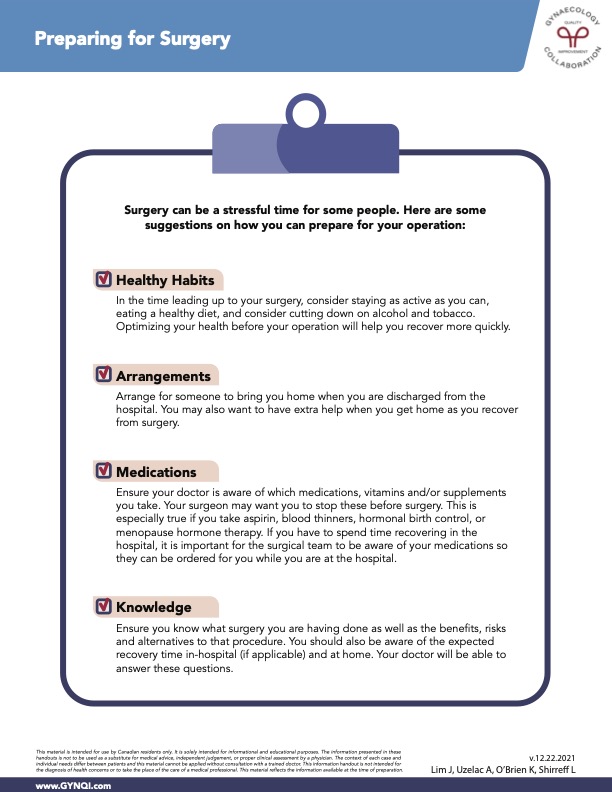
Table of Contents
- Summary
- Healthy Habits
- Arrangements
- Medications
- Knowledge
- Taking Charge of Your Health
Summary:
- It’s normal to feel anxious before surgery, but proper preparation can help ease your mind and ensure a smoother experience, especially in gynaecological health.
- Focus on maintaining an active lifestyle, eating a nutritious diet, and cutting back on alcohol and tobacco to optimize your health and improve your recovery.
- Arrange for transportation home and consider meal prep and cleaning your space beforehand to reduce stress during your healing process.
- Stay informed about your procedure, share all medications with your medical team, and ask questions to ensure you understand the recovery process.
Surgery can be a stressful experience for many individuals, and feeling anxious before the procedure is entirely normal. Proper preparation can help ease your mind and ensure a smoother surgical journey. This is especially important with gynaecological procedures, where understanding the surgery process and its implications can impact your overall well-being and recovery.
Healthy Habits
In the lead-up to your surgery, there are a few lifestyle habits you can implement to help you recover more quickly after the procedure.
These include:
- Keeping active (when possible)
- Eating a healthy diet
- Cutting back on alcohol and tobacco
Optimizing your health before your surgery will have positive impacts on your recovery process, help you regain strength more quickly, and reduce the risk of complications.
Arrangements
Thinking ahead, take note of things you may need help with, either after your surgery or ongoing during your healing. To alleviate stress on your body and mind, arrange for someone to pick you up and bring you home when you are discharged from the hospital.
You may also need extra help when you get home. Consider giving your space a clean before leaving for the hospital so you don’t need to worry about it later. Meal prep is also a great idea, as cooking while you’re recovering may not be possible.
Medications
Keeping your medical team informed of all your medications and supplements is very important. On the advice of your doctor, some medications may need to be stopped before surgery as they have the potential to affect the way the blood clots. This is especially true if you are taking:
If you need to spend time recovering in the hospital, your surgical team needs to be aware of your medications so they can be ordered and ready for you during your hospital stay.
It’s helpful to have a list of your medications and supplements on hand, with the doses and frequency noted.
Knowledge
Take a proactive approach and talk to your doctor about what type of surgery you are having done, and what the expected benefits, risks, and alternatives are to having that specific procedure.
You should also be informed of the expected recovery time in-hospital, if any, and what at-home recovery and care will look like.
The more knowledge you have, the easier it will be to prepare. Ask your doctor any and all questions you have—they are there to guide you through the process from start to finish.
Taking Charge of Your Health
Preparing for surgery beforehand is essential for a smooth recovery. Adopting healthy habits like staying active, eating well, and reducing alcohol and tobacco can boost your resilience after the procedure, while thoughtful planning, such as arranging transportation and support at home, helps alleviate stress. Open communication with your medical team will empower you throughout the process, creating a path for an efficient recovery journey.



